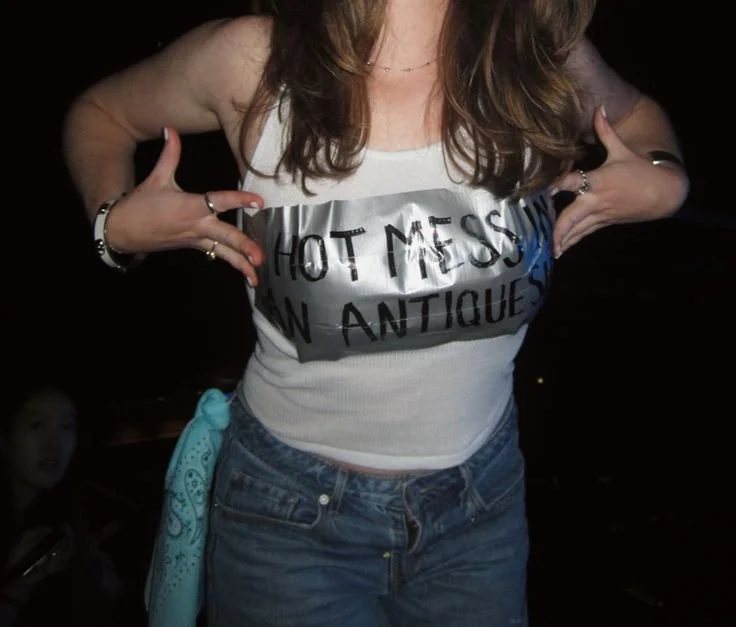What is the meaning behind Lorde's Virgin album?
Lorde is back, and she’s not holding anything back this time. The highly anticipated Virgin, released in late June 2025, has everyone talking. After Solar Power in 2021 left fans feeling a little lackluster (some said it was missing her usual spark), Virgin hits hard. It’s raw, it’s bold, and it’s deeply personal. Lorde dives straight into the mess of body, identity, and self, grappling with gender, fame, and what it really means to live in your own skin in a world that loves to label everything.
Hammer
The opener, “Hammer,” begins with intention. It’s the sound of reconstruction, Lorde tearing down the old version of herself and building a new one. Over percussion, she declares her body a site of change and movement saying, “Some days I’m a woman, some days I’m a man.” It’s restless, gender-fluid, and alive, capturing the chaos of being in your late twenties and still searching for clarity.
What Was That
“What Was That” turns inward, with a post-breakup reflection. Lorde examines the aftermath of a relationship while simultaneously reckoning with her own body’s changes. The lyric “I cover up all the mirrors, I can’t see myself yet” feels like both heartbreak and identity crisis. It’s the sound of someone who’s shifting on every level – hormonal, emotional, existential – and not yet ready to face her reflection.
Shapeshifter
“Shapeshifter” continues the theme of fluidity, with Lorde transforming through roles, genders, and expectations. There’s also a quiet rebellion here: the pop star who was once “placed on a pedestal” now choosing to fall off it, surrendering to imperfection. The track truly captures the reality of constant evolution.
Man of the Year
On “Man of the Year,” Lorde redefines the masculine archetype. Inspired by her experience at a GQ Man of the Year event, she flips the label on its head, questioning what “manhood” even means and whether it’s a performance we all participate in. It’s both critique and confession, as she claims autonomy over her own self: “I’m not your woman of the year, I’m something freer.”
Favourite Daughter
“Favourite Daughter", the fifth song of her album, is part love letter to her mother, part reflection on her inheritance of fame. Lorde looks back on being thrust into the spotlight as a teen and how that impacted her. There’s tenderness here, but also tension, as she grapples with approval, legacy, and the burden of familial expectations.
Current Affairs
We’re over halfway through the album and “Current Affairs” emphasizes the feelings of being overwhelmed by the world and how that chaos reflects her own shifting self. She ties global disorder to personal disarray, including political, emotional, and relational struggles, showing that the state of the world often mirrors the state of the self. The song mixes stress and burnout with small moments of peace as she tries to stay grounded amid confusion and pressure.
Clearblue
“Clearblue” might be Virgin’s most vulnerable moment. Named after the pregnancy test brand, the song dives headfirst into the fear, fragility, and raw autonomy of womanhood. Lorde walks us through the anxiety of taking a pregnancy test after unprotected sex, imagining her lover’s DNA as something almost tangible inside her. The track is an emotional rollercoaster, from shock to bargaining to disbelief, before the test comes back negative, leaving her shaken, relieved, and a little confused about how to feel.
GRWM
With “GRWM” (short for “Get Ready With Me”), Lorde takes a look at the performance of self in the age of social media. On the surface, it’s about the ritual of getting ready: the makeup, the mirror, the mask. But underneath, it’s really about how we transform ourselves to survive. Who are we when no one is watching?
Broken Glass
“Broken Glass” cuts deep. It’s an unfiltered look at disordered eating, self-image, and the pressure to be small in body and in presence. The shards of glass become a metaphor for fragmented identity and her biggest enemy is the mirror. But by the song’s end, there’s a sense of reconstruction, the artist seeing her own pieces and choosing to build something new.
If She Could See Me Now
One of the album’s most affecting tracks, “If She Could See Me Now,” feels like a letter to her younger self. It’s tender but unsparing, an acknowledgment of how far she’s come and what she’s lost along the way. With lines like “At the gym, I’m exorcising, all the demons,” Lorde ties physical recovery to emotional healing. It’s not self-pity, but self-recognition.
David
“David” closes Virgin with intimacy. Whether it’s about a lover, a muse, or a mirror version of herself, the song feels like resolution, a return to earth after all the transformation. It’s quiet, almost prayer-like, as she sings to someone (or something) that finally sees her clearly. After all the fluidity, experimentation, and self-questioning, “David” lands on connection, the most human thing of all.





